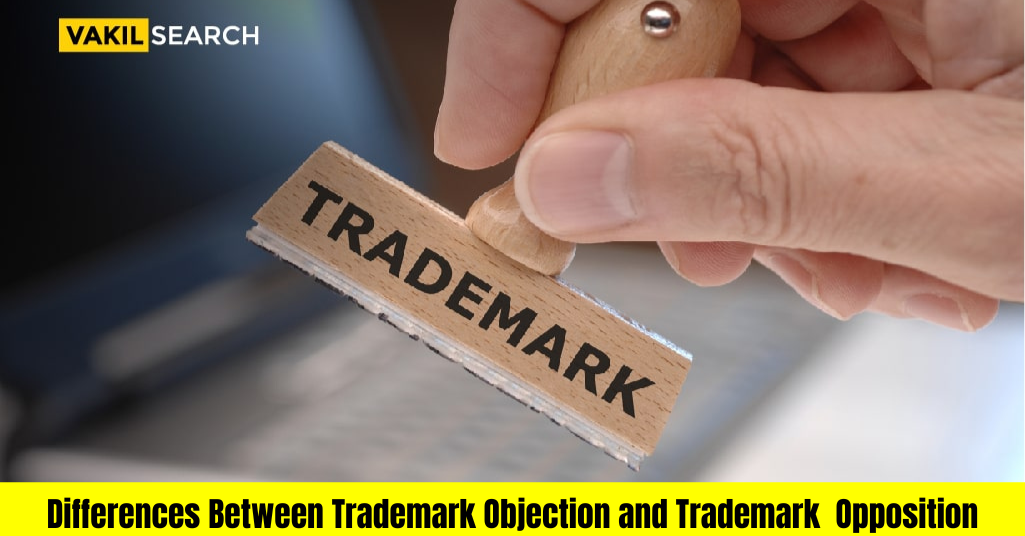In this article, we'll discuss the differences between Trademark objection and opposition. Read more!
A trademark is a form of intellectual property protection. It helps protect an individual or business from being confused about who owns a particular product or service. The Government of India introduced the Trademarks Act on 01 July 1999. It aims to protect the interests of consumers and promote fair competition among businesses. In this blog, we will explore the key differences between trademark objection and trademark opposition, and provide you with a clear understanding of what each term means and how they differ.
Any Issues in the Application of a Trademark Generally Fall Under Two Categories
- Trademark Objection
- Trademark Opposition
Trademark Objection
After reviewing your application, the trademark examiner will issue a trademark objection, which is a form of preliminary negation. Trademarks are challenged because they are similar to other pending or registered marks. According to trademark law, there are other reasons, such as international proprietary names, geographical names, and offensive or improper words as a part of or as a trademark. In most cases, the formality can be avoided by adequately representing yourself in front of the registrar. It may be necessary to appeal the decision to the appellate board in some cases. Periodic examination of trademark applications is required. The examiner’s trademark objection will result in the trademark being abandoned. It’s the same as spending your money, and now you’ve lost it.
Facts to Remember
- To represent your case, contact a reputable trademark lawyer
- Unless you’re confident of what you’re doing
- It is not recommended that you use an online sample or format
- If you use the sample, the trademark office will disregard your response and refer your case to a hearing
- Within 30 days, respond to a trademark objection.
Trademark Opposition
A trademark opposition is a legal action brought by a third party. Opposition is similar to the activity of someone stealing your sole right or idea. It is usually accepted soon after publication in a trademark journal, usually within three months of publication. Opposition is a third-party action taken by people who have genuine interests in the trademark or by someone who believes that trademark registration of that trademark would be detrimental to the person’s decorum, market, or any other aspect of their business.
Opposition is becoming more familiar and accessible than it has ever been before, even if the trademark examiner has examined and approved your application for a trademark. While registering a trademark, keep in mind that trademark opposition is a serious matter to consider. When people disagree, it can lead to accusations, infringement claims, and financial penalties.
Suppose an applicant’s trademark is called into question. In that case, they must respond to the challenge within two months of receiving notification from the registrar of trademarks. Here are some of the distinctions between trademark opposition and trademark objection.
Suppose an applicant’s trademark is called into question. In that case, they must respond to the challenge within two months of receiving notification from the registrar of trademarks.
Here Are Some of the Distinctions Between Trademark Objection and Trademark Opposition.
| Trademark objection | Trademark opposition |
| Objection is issued by examiner | Opposed by the third party |
| Need to be responded within 1 month | Need to be responded within 2 months |
| No fee involved | Applicant need to reply with fee |
| Process under Trademark Registration | Separate process from Trademark Registration |
| No response will lead to removal | No response will lead to removal |
| Appeal lies against Rejection | Appeal lies against judgement |
| Acceptance is published in Journal | Judgement is communicated to the parties. |
Read More,










